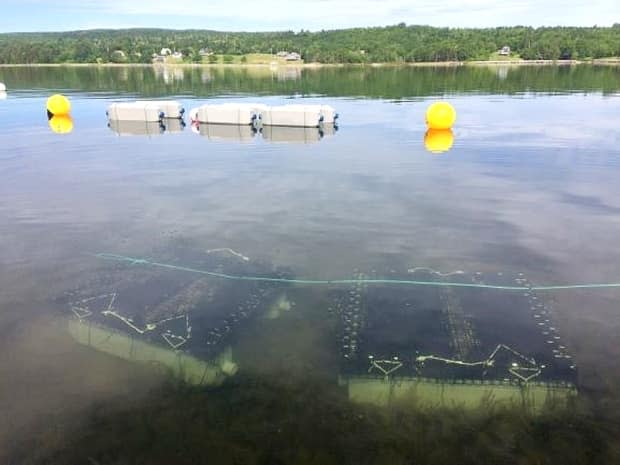Funding in place for Cape Breton hatchery to help restore oyster industry

The provincial and federal governments are providing the seed money to help restart the oyster farming industry in Cape Breton's Bras d'Or Lake.
Officials with Nova Scotia Fisheries and Aquaculture and Fisheries and Oceans Canada announced $2.1 million in funding on Friday to help establish a land-based hatchery to provide breeding stock and healthy larvae for commercial oyster growers.
The hatchery will help re-establish an industry that was wiped out a couple of decades ago by Multinucleate Sphere Unknown X disease, also known as MSX, which is spread by a parasite that kills oysters, but is harmless to humans.
"Given that we have this parasite in the Bras d'Or, I don't know if [a hatchery] is the last hope, but it's certainly the next-to-last hope," said Rod Beresford, a Cape Breton University biology professor and oyster researcher.
Recent research has shown that oysters can survive even though MSX is in the saltwater Bras d'Or Lake, by not using traditional beds on the sea floor, said Beresford, who has been studying floating cages that grow oysters closer to the surface.
But much of the breeding stock has been killed off and it's risky bringing in oysters from elsewhere.

That's why a hatchery is an important step in providing clean, reliable seed that can get commercial farms back in business, Beresford said.
Government support will help growers and enhance the use of the Bras d'Or Lake, said Beth Mason, CEO of the Verschuren Centre for Sustainability in Energy and Environment.
"The revitalization of this key shellfish sector through a novel mitigation strategy, seed nursery and hatchery, will enrich this world-renowned jewel for all who live, work and depend upon it for their livelihood," she said.
The equipment will be placed in containers and initially located at the Verschuren Centre, which is located on the CBU campus, but Beresford said he hopes it will eventually be moved out to locations closer to the Bras d'Or Lake.
Mobile hatcheries are used elsewhere and are custom made by a firm in the United Kingdom, he said.

"This is how everybody has moved towards both re-establishing [oyster] industries and then maintaining industries, because there's so much consistency to it and it's so much more predictable," Beresford said.
It is also increasingly necessary "because with climate change, you really don't know necessarily, like they used to, when oysters are going to spawn," he said.
In addition to the funding announced Friday, growers and the federal Atlantic Canada Opportunities Agency have put money into the project, bringing the total up to $2.8 million.
The plan is to eventually make the hatchery financially sustainable as a research facility and commercial operation, Beresford said.
MORE TOP STORIES


